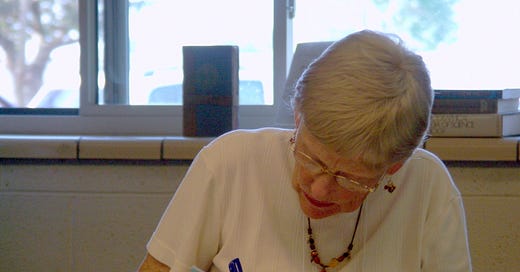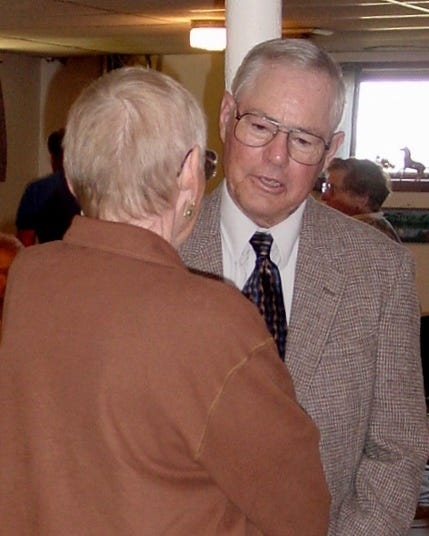As I stepped into the booth to have my passport checked in the Moscow airport, I was struck by the rather cold, no-nonsense stare of the young Russian guard. It was October of 1987 and newly appointed Soviet President Gorbachov was just beginning his new policy of “glasnost”, easing some of the very rigid governmental control on Soviet Society. I was there as part of a visiting delegation of U.S. women who had been invited by the Soviet Women’s Committee for an exchange visit following their visit to the U.S. in 1985. Ernie & I had hosted one of the delegates in our home at that time. I was chosen to be part of the U.S. team of 12 for the return visit because of that and because I was active in our local Peace Links group. Sponsored by National Peace Links, half of the delegation was wives of U.S legislators and half of us were members and former hosts. A reporter and photographer from NBC’s popular Today Show and a woman columnist from the New York Times were also with us.
I was determined to be open-minded and not let the stereotype of all Russians as cold, unfeeling automatons that was so prevalent in our national press and culture influence my experience. I was naïve, of course, and viewing the stern, unyielding stare of the young guard immediately impressed upon me that this might not be as easy as I had thought. Coming from Iowa and the Mid-west, I was used to having people respond to my smile with at least a relaxing of their facial muscles. This young man, however, took his job very seriously and was suspicious of our groups laughing, light-hearted entrance into their country. It was reassuring to see the more relaxed features of our hostesses from the Women’s Committee whom we had met before.
They showed off the best things their country could offer in schools, day-care centers, museums, farms, cultural events, etc. just as we had tried to show the best when they visited the U.S. After visiting Moscow for five days, we were divided into teams to visit other parts of this huge country with eleven different time zones. I went to the state of Georgia, an agricultural area with a culture and tradition culture much closer to Greece and Turkey. While Moscow was very much a huge city that took itself very seriously, the Georgians were more free-spirited and spontaneous. The markets had more fresh produce and the many meals we were treated to were more varied and lavish and wine flowed freely at every event.
At the end of the two weeks, I was very tired and suffering from sensory over-load from all my experiences including talking with a college professor in Tblisi, Georgia, who was trying to get clearance to come to the US for advanced study, to being feted and serenaded by marvelous “village” choirs, to realizing our hotel rooms in Moscow were bugged. It was an overwhelming experience and it took me several weeks to sort it all out. I found some of the stereotypes true, but also admired the skill and warmth of our two young women interpreters, learned who won the World Series from our host in a private home in Moscow who was a popular Russian TV personality, was struck by how far behind their society was in some of the technical areas which we took for granted, and how far ahead of us they were in providing child-care for working mothers with children. Everywhere we went there were signs of the deep trauma they still experienced as a result of World War II.
I spent the following year and a half sharing my experiences with different church groups, civic clubs, and college classes. I often used a quote from Psalm 34:14, “Seek peace and pursue it” to explain to myself and others the reasons why I went on this journey and why I continued to believe our goal of a peaceful world might be possible.
Beth Wilson





